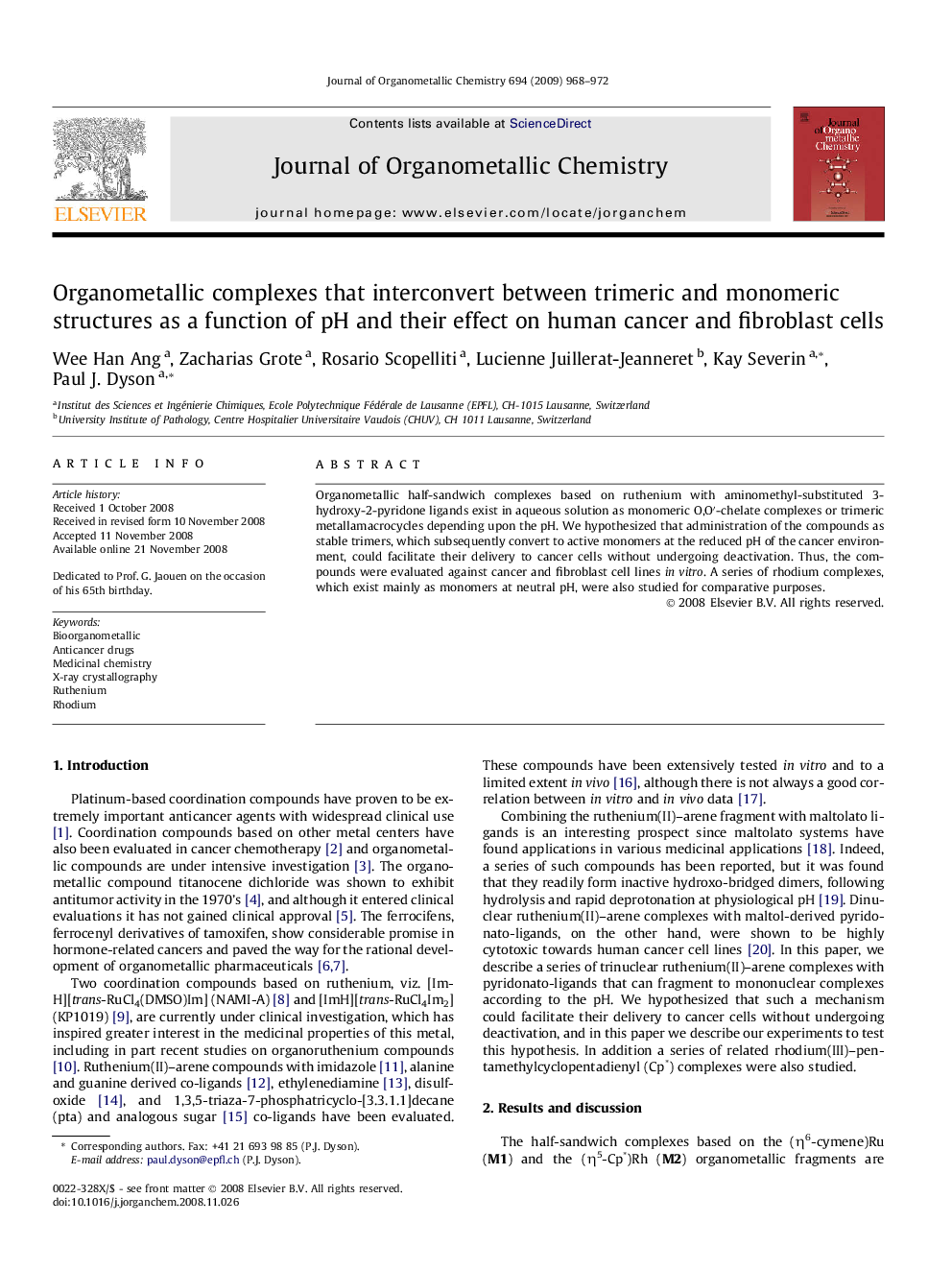| Article ID | Journal | Published Year | Pages | File Type |
|---|---|---|---|---|
| 1322873 | Journal of Organometallic Chemistry | 2009 | 5 Pages |
Organometallic half-sandwich complexes based on ruthenium with aminomethyl-substituted 3-hydroxy-2-pyridone ligands exist in aqueous solution as monomeric O,O′-chelate complexes or trimeric metallamacrocycles depending upon the pH. We hypothesized that administration of the compounds as stable trimers, which subsequently convert to active monomers at the reduced pH of the cancer environment, could facilitate their delivery to cancer cells without undergoing deactivation. Thus, the compounds were evaluated against cancer and fibroblast cell lines in vitro. A series of rhodium complexes, which exist mainly as monomers at neutral pH, were also studied for comparative purposes.
Graphical abstractThe notion that pH could be used to activate trimeric ruthenium(II)-arene compounds, giving more reactive and cytotoxic mononuclear species, is explored using tumorigenic and non-tumorigenic cell lines.Figure optionsDownload full-size imageDownload as PowerPoint slide
